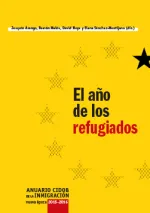The integration of immigrants into spanish society: weaknesses and strengths in times of crisis

The economic crisis poses a serious challenge to the manifold processes of immigrants’ social integration. In this article, we use an innovative system of indicators to discern the advances and setbacks made in integration in Spain during the first part of the crisis (2007–2010/11). As was to be expected, the labour market downturn hit foreign workers harder than Spaniards, and the material wellbeing of immigrants was also more adversely affected. However, other fields were resistant to this downward trend: immigrants’ administrative situation appreciably improved and the quality of their social relations remained stable. This finding shows the notable degree of independence of integration processes in distinct domains.
Key Words: Integration processes, integration dimensions, indicators, integration quotients, economic crisis, Spain
>> The full text articles of this issue are available only in Spanish language